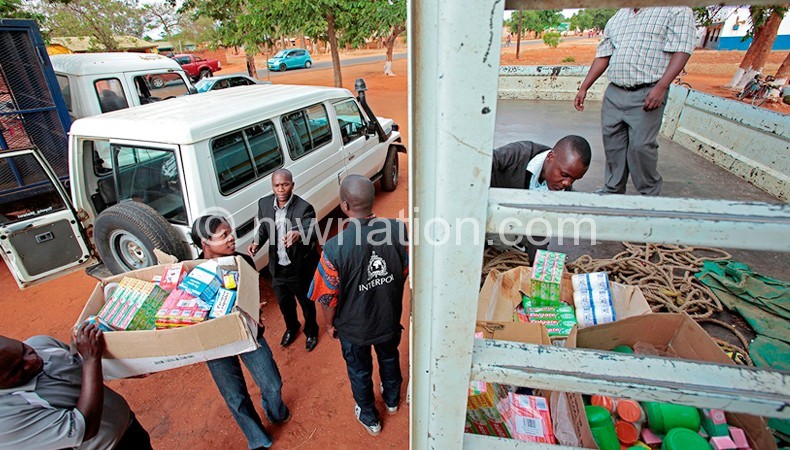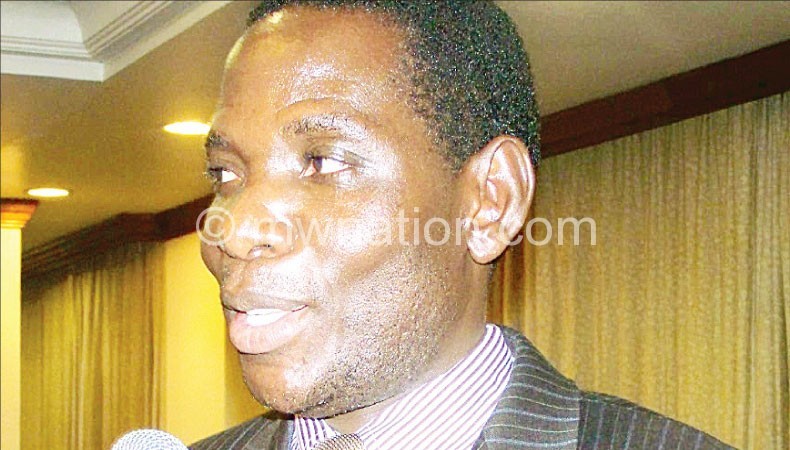Hassles of trading across the border
Last week Monday afternoon, Business Review was part of a Malawi delegation to Chipata, Zambia, where Malawi and Zambia launched the Nacala Road Corridor Development Project phase four.
We (Chisomo Ngulube and Steward Gwaladi of MBC TV and myself) hoped for a smooth entry into Zambia.

This was premised on the fact that we were being ferried by the Roads Authority (RA), one of the implementing agencies of the project (for the Malawi component).
But it took us some good minutes for us to drift into the Zambia side despite being on a delegation led by Minister of Industry and Trade, Joseph Mwanamvekha.
As a ‘norm,’ my colleagues from MBC had to declare their television equipment right at Mwami border on the Zambian side which even necessitated an official at the Zambian border to invade our vehicle to physically verify the equipment.
“When will this sickening bureaucracy end in our borders?” quizzed Ngulube.
Furthermore,we had to obtain an insurance necessary for our vehicle to use Zambian roads.

As we were cleared by Zambian custom and immigration authorities, there was one more eyesore yet to come.
We witnessed an embarrassing moment. A latest and posh Prado from Malawi ferrying a senior official from the Roads Fund Administration (RFA) was denied entry into Zambia.
We learnt later that it was supposed to pay a toll road fee of $5 [K2 250].
And a middle-aged, small-scale business woman corroborated our concerns.
“I usually cross the border to go to Chipata to buy zitenje and other merchandise such as fruits in bulk for resell here in Malawi, but formal processes at the two border posts are very frustrating,” complained Anita Ntagula, who comes from Kasungu.
One of us joked: to cross the borders from Malawi is like crossing a river infested with ferocious crocodiles, but that river has no bridge at all. We laughed our lungs out and drove off to Crossroads Hotel in Chipata, Zambia.
In this context, Ntagula is among a myriad of women whom Business Review randomly interviewed at the tow border posts between Malawi and Zambia last week who are feeling the pinch of cross- border trading.
She and colleagues continue to be subjected to a hostile environment such as lack of knowledge and information on the benefits of trading with other countries, complex documents and complicated processes of filling the current forms, increased clearance costs, delays in the clearing of goods and processing of tax refunds, among others.
Small scale traders hard-hit at borders
Complex documentation and duplication of work and of course congestion at both Mwami and Mchinji borders are the last thing that small-scale businesses from Malawi want to see.
At the Mwami/Mchinji border post, for instance, small traders pay on average 62 percent more than large traders to informally move one tonne of a commodity across the border, according to a Diagnostic Trade Integration Study (DTIS) for Zambia.
It would be three times that amount if they were to go through the formal border post, according to the study.
Most of the commodities traded by small-scale cross border traders, according to our findings, include agricultural commodities, small electronics, household appliances, clothes, shoes and cosmetics, among others.
And William Mwale, executive director of National Association of Small and Medium Enterprises (Nasme), shares the same worries echoed by most small entrepreneurs on cross border trade.
“It takes too long to get cleared on the border, maybe two hours and in some cases if you are travelling by bus to when you are travelling by your car, it could take you thirty or forty minutes while you are rushing to do business, say, in Lusaka and you want to come back,” complained Mwale in an interview at Mwami border on Tuesday last week.
Mwale said because of the delays at the main border posts coupled with numerous road blocks between Lilongwe and Lusaka, most SMEs feel frustrated and incur huge costs which, eventually squeeze them out of their already small business ventures.
As it stands now, conducting cross border transactions still remains expensive for small-scale traders in Malawi.
Frustration fuelling informal trade
It is probably easier, cheaper, and faster to cross the border informally with growing frustrations and bureaucracy at the borders.
Informal trade is a common feature of African landscapes, according to World Bank findings.
The bank estimates that some three million metric tons of staple food commodities were traded informally in East Africa in 2013, and that several hundred thousand cross Southern Africa’s borders via informal routes every year.
Estimates are that up to 70 percent of the informal traders are women, who in some cases are harassed.
It is generally accepted that most small scale business operators have recently resorted to unchartered routes when crossing borders due to delays at the border posts.
And the World Bank’s country director for Zambia, Malawi and Zimbabwe Kundhavi Kadiresan insisted recently that informal traders are a major feature of the Malawi and Zambian economic and social landscapes.
She said the bank is pioneering efforts to engage in cross-border action between Zambia and Malawi to tackle key issues such as informal trade and non-tariff barriers that will support economic development.
Addressing cross border traders woes’
A ray of hope is beaming for cross-border traders in Malawi, Zambia and Zimbabwe.
Authorities in these countries are working tirelessly to ease cross-border trade.
Just last week, Zambia and Malawi launched the construction and establishment of two one stop border posts between Malawi and Mozambique at Chiponde and between Malawi and Zambia at Mchinji.
The launch is envisaged to bring a new era and new lease of life among cross border traders, according to officials from the two countries.
The African Development Bank (AfDB) Country Representative for Malawi Andrew Mwaba, whose bank is financing the project, hopes that the one-stop-border post will improve the flow of traffic at border crossings.
The construction of one border post at Mwami/Mchinji border is slated to complete in 2017, authorities say.
Minister of Industry and Trade Joseph Mwanamvekha anticipates that the one stop border post concept will greatly improve the country’s trade facilitation and says the initiative is one of Malawi’s trade facilitation reforms.
And the Common Market for East and Southern Africa (Comesa) has joined the bandwagon to help cross-border traders.
For years now, the trade bloc has tried to address some of those challenges with its Simplified Trade Regime (STR).
Under this initiative , traders carrying goods included in a pre-negotiated list and worth up to $1 000 [K450 000] are cleared them with little paperwork (using a simplified certificate of origin) and without inspection by clearing agents.
The processing fee, under the initiative, has also been lowered in a number of Comesa countries.
In 2010, Malawi launched a first simplified trade regime (STR) with Zambia under the Common Market for Eastern and Southern Africa (Comesa) with an aim of easing the cost of doing business across the borders of the two countries and facilitate cross-border trade in the process.
Later in 2012, Malawi also launched a second STR with Zimbabwe at a function that took place at Nyamapanda border in Zimbabwe.
Ironically, while trading is their daily business activity, most small-scale traders are not aware that there exists a regime that is aimed at their woes and several traders that we talked to at the border, have not even heard about STR.





